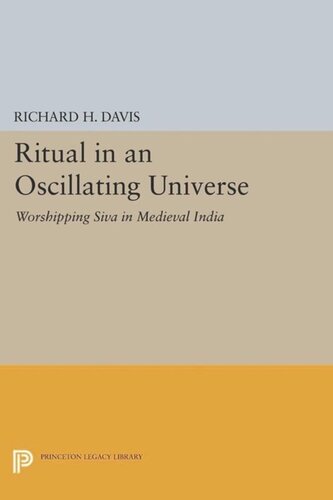

Most ebook files are in PDF format, so you can easily read them using various software such as Foxit Reader or directly on the Google Chrome browser.
Some ebook files are released by publishers in other formats such as .awz, .mobi, .epub, .fb2, etc. You may need to install specific software to read these formats on mobile/PC, such as Calibre.
Please read the tutorial at this link: https://ebookbell.com/faq
We offer FREE conversion to the popular formats you request; however, this may take some time. Therefore, right after payment, please email us, and we will try to provide the service as quickly as possible.
For some exceptional file formats or broken links (if any), please refrain from opening any disputes. Instead, email us first, and we will try to assist within a maximum of 6 hours.
EbookBell Team

4.0
36 reviewsSaiva liturgy is performed in a world that oscillates: a world permeated by the presence of Siva, where humans live in a condition of bondage and where the highest aim of the soul is to attain liberation from its fetters. In this account of Indian temple ritual, Richard Davis uses medieval Hindu texts to describe the world as it is envisioned by Saiva siddhanta and the way daily worship reflects and acts within that world. He argues that this worship is not simply a set of ritualized gestures, but rather a daily catechism in which the worshiper puts into action all the major themes of Saiva philosophy: the cyclic pattern of cosmic emission and reabsorption, the human path of attaining liberation, the manifestation of divinity in the world, and the proper interrelationship of humanity and god. In re-creating the convictions and intentions of a well-versed worshiper of the twelfth century, Davis moves back and forth between philosophical and ritual texts, demonstrating the fundamental Saiva belief that the capacities of humans to know about the world and to act within it are two inter-related modalities of the unitary power of consciousness.
Originally published in 1991.
The Princeton Legacy Library uses the latest print-on-demand technology to again make available previously out-of-print books from the distinguished backlist of Princeton University Press. These editions preserve the original texts of these important books while presenting them in durable paperback and hardcover editions. The goal of the Princeton Legacy Library is to vastly increase access to the rich scholarly heritage found in the thousands of books published by Princeton University Press since its founding in 1905.